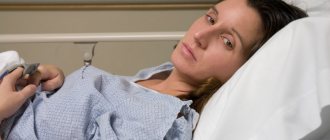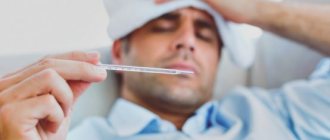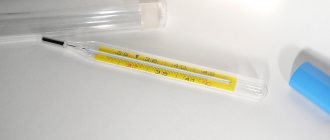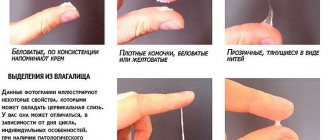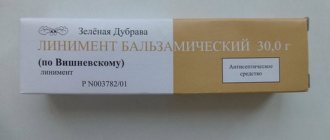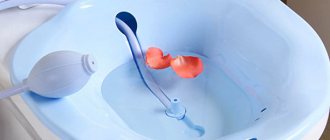Many people experience fever with hemorrhoids. It is important to know what causes this symptom and what to do when it occurs. Hemorrhoids are a very unpleasant disease. If treatment is not started in time, the pathology will constantly progress, causing new complications. This disease is often accompanied by negative conditions in the form of impaired blood circulation in the hemorrhoidal veins.
The characteristic manifestations of hemorrhoids are pain, discomfort, burning and itching in the rectal area. Some people experience fever with hemorrhoids. Should I be worried in this case? What complications of the disease have this symptom?
Causes of the phenomenon
A sharp increase in temperature to 40°C may indicate an acute stage of the disease. The nature of hemorrhoids often resembles varicose veins. In any case, the vessels located in the anal area experience increased pressure, which leads to the formation of nodes and lumps.
Most often they provoke the development of hemorrhoids:
- load during pregnancy and childbirth;
- sedentary work;
- chronic constipation.
The clinical picture usually corresponds to the stage of progression of the disease. At the initial stage, a person experiences unpleasant and minor painful sensations during the process of defecation. Most often, no attention is paid to this, but gradually the pathology becomes chronic.
Often the patient’s well-being rapidly begins to deteriorate, this is a sign of the formation of an acute stage. With hemorrhoids, there may be a fever and complications develop as the disease progresses.
The transition of pathology to a more severe stage is indicated by:
- sharp pain;
- burning sensation;
- frequent bleeding from the anus.
Such manifestations cannot be considered an accident or a misunderstanding. Can there be a fever with hemorrhoids? Yes. As a rule, when pathology passes from the acute stage to the chronic form, it remains at the subfebrile level and does not reach a level above 37°C.
Causes of hemorrhoids and their stages
Hemorrhoids can be caused by:
- pregnancy and childbirth;
- frequent constipation;
- excess weight;
- poor nutrition;
- inactive lifestyle;
- heredity;
- physical exercise.
frequent constipation
excess weight
inactive lifestyle and poor diet
Hemorrhoids have several stages. The disease does not appear suddenly. It’s just that at the initial stage it is painless and without external signs.
- As the disease progresses, a person begins to feel tingling and itching in the anal area. At this point, constipation may appear, which worsens after drinking alcohol, lifting weights, eating spicy and fatty foods.
- The next stage is accompanied by the appearance of cracks and bleeding. This occurs because constant tension leads to thinning of the blood vessels. Blood may appear during or immediately after a bowel movement.
- If left untreated, the disease becomes chronic.
What can such manifestations indicate?
If an increase of more than 37°C is observed, the development of such severe complications as:
- thrombosis of hemorrhoidal formations;
- node necrosis;
- general blood poisoning, or sepsis;
- paraproctitis;
- perirectal abscess.
Often, an increase in temperature is a sign of the development of complications after surgical treatment of lumps and nodes. Moreover, it is worth paying attention to the fact that at first the temperature is insignificant. Therefore, many do not attach importance to this symptom, but gradually it begins to increase.
What complications occur with hemorrhoids? Pathology does not always manifest itself with acute symptoms. Often at the initial stage it is practically asymptomatic, so patients do not rush to seek medical help. This contributes to the fact that by the time complications develop, the disease is already very advanced.
Complications include bleeding and the formation of cracks in the anus. Small wounds often become infected, which leads to the development of inflammation. It is the presence of a pathological process that is often accompanied by elevated body temperature. In addition, when the disease worsens, the patient is concerned about:
- Severe pain in the anus.
- State of weakness and fever.
- Nodes and bumps increase. Often ulcers begin to appear on their surface, which only aggravates the patient’s condition.
- Open small wounds become infected with pathogenic microorganisms, which leads to inflammation.
The penetration of bacteria into nodes is often accompanied by the development of thrombosis. At the beginning of a complication, the temperature remains within normal limits or an increase to a slight mark on the thermometer is observed. However, as the inflammatory process in the body continues, the change in temperature can be severe.
Hemorrhoids are dangerous primarily because of their complications, which are almost always accompanied by fever. If the disease is not treated, then as it progresses, the patient often experiences necrosis of the hemorrhoids. This complication is accompanied by the appearance of signs of tissue death, since their blood supply stops. The body rejects the nodes, which leads to the formation of ulcers.
Necrosis requires urgent hospitalization, as sepsis can develop, which is often fatal. When the blood is infected, the body temperature becomes very high. The skin around the affected area swells and turns red. The pain in the anus becomes unbearable. In this case, not only the skin is affected, but also the deep layers of tissue and the anal mucosa. In this condition, the patient requires an ambulance that will take him to the surgical department for further treatment.
Paraproctitis is another possible complication of the disease, also accompanied by an increase in temperature to a critical level. As the disease develops, a severe febrile state is observed. Pus is discharged from the rectum. If you do not provide help to the patient in time, the consequences can be fatal. The situation is also dangerous because the infection quickly spreads to nearby organs. Paraproctitis is treated with antibiotics.
The disease is often accompanied by the formation of abscesses and fistulas in the rectal area. They are complications of paraproctitis. The patient's temperature exceeds 38°C. To alleviate the patient's condition, opening the abscess and treating the tissue is required. After this, the person feels better.
Even the most successful surgical operation does not always bring the expected result. Today, doctors are trying to use the least traumatic methods for removing nodes formed during hemorrhoids. In most cases, they bring relief to the patient and allow him to live a normal life.
If the temperature rises after the intervention, this indicates that a postoperative complication is developing in the body. Increased temperature always occurs with inflammation in the anal area. This situation is often observed during a poorly performed operation. After the manipulation, the patient is required to strictly adhere to the rules of personal hygiene, especially during the recovery period. Therefore, when treating hemorrhoids, it is necessary to be observed by specialized doctors. If the elevated temperature cannot be controlled with medications, then a repeat operation is prescribed.
Fistulas and suppuration
A rectal fistula forms in the tissue surrounding the rectum several months after radical surgery. Appears as a consequence of a purulent process in the area of the anus after surgery. This is a pathological canal that connects the rectal canal with other pelvic cavity organs or with the external environment. If the fistula opens in the anorectal area, feces, pus, and mucus are released from it. With a blind fistula, its contents accumulate and lead to gangrene. It is painful for the patient to sit, walk, or recover. A complication develops in very rare cases when the surgeon’s operating tactics are incorrect, when:
- in severe cases of hemorrhoids, the abscess is drained rather than removed;
- In the process of suturing the rectal mucosa, the muscle layer is sutured.
These actions lead to inflammation. If, due to insufficient care, pathogenic microflora joins, a fistula is formed. When it occurs, there is a high risk of developing sepsis. Therefore, high fever, chills, pain, purulent discharge from the fistula requires going to the hospital and undergoing surgery.
What to do in this case?
Knowing the causes of elevated temperature with hemorrhoids, you need to figure out how to help the patient in such a situation. It should be noted right away that you should not self-medicate. The consequences for the body can be very severe. Therefore, you need to seek help from doctors. The attending physician will write out a referral for tests and will be able to accurately determine the cause of such a symptom in the patient.
Depending on the state of health, as well as the cause, he will be able to select adequate therapy. This will avoid further deterioration of the patient's condition.
Pathological expansion of the veins of the rectum is called hemorrhoids. This disease is accompanied by unpleasant sensations in the anus - burning, itching, pain and bleeding during bowel movements. The temperature with hemorrhoids is often within the normal range, but when the disease enters the acute phase, it can rise sharply. In such cases, first aid and subsequent surgical intervention cannot be avoided - it is necessary to urgently remove the affected tissue and regularly sanitation the damaged area.
Anal fissure
An anal fissure is a mucosal defect in the distal anal canal. It is small in size - rarely reaches more than 1 cm. Despite this, without treatment it does not heal for a long time. This is due to the spasm of the anal sphincter that it causes. The resulting spasm, in turn, also causes severe pain and makes it difficult for the crack to heal. A vicious circle is formed, which explains the difficulties in treatment.
A crack forms after removal of the nodes as a result of damage to the mucous membrane by hard feces during constipation. The main clinical sign is severe pain and the appearance of blood during bowel movements. The site of injury may also be very itchy. Unpleasant sensations continue from several minutes to several hours after bowel movement.
The formation of a mucosal defect after surgery leads to the progression of constipation: fear at the thought of unbearable pain forces the patient to delay the moment of defecation. Constipation gradually worsens.
If the damage to the mucous membrane lasts for 1.5-2 months, the crack is acute. Subsequently, it grows with fibrous tissue and a compaction is formed. The crack becomes chronic.
Can there be a fever with hemorrhoids?
Hemorrhoids develop as a result of a violation of the outflow of blood when pressure increases in the vessels of the rectum. It provokes the appearance and enlargement of nodes. Basically, the disease occurs without fever, but if the patient’s temperature suddenly begins to rise, it’s time to think about therapy. Temperature from hemorrhoids occurs only at the beginning of inflammation. This phenomenon occurs when ulcers are found on hemorrhoidal cones. They quickly become filled with pathogenic bacteria (staphylococci, streptococci). Infection can cause high fever.
Hemorrhoids are predominantly diagnosed in women and men over 30 years of age. Proctologists identify several of the most common reasons for the development of this disease:
- passive lifestyle;
- pregnancy, childbirth;
- large excess weight;
- frequent constipation;
- hereditary predisposition;
- poor nutrition;
- physical work with heavy loads.
Reasons for rising temperature
In the chronic course of the disease, high fever is extremely rare, so most people prefer self-medication to timely consultation with a doctor. The disease develops slowly and is almost imperceptible to humans. But if it is not stopped at the initial stage, the inflammation will sooner or later begin to progress. When hemorrhoids enter the acute stage, fever may occur along with other symptoms of the disease. Alcohol consumption, heavy physical work and the appearance of anal fissures can trigger the onset of the inflammatory process.
Experts identify the main reasons that can cause high body temperature with hemorrhoids:
- chronic form of hemorrhoids;
- acute form of the disease;
- sepsis:
- thrombosis or necrosis of nodes;
- paraproctitis;
- perirectal abscess;
- postoperative period.
Possible complications
In the chronic form of the course, hemorrhoids rarely give rise to increased body temperature. Timely complex therapy can protect the patient from the development of unwanted severe complications, which can sometimes lead to death.
If the disease is accompanied by bleeding, chills or weakness, the hemorrhoids are enlarged and painful - these symptoms indicate the end of remission and the beginning of a period of exacerbation. Hemorrhoids often give rise to high fever when complications develop in the body.
| Complications | How do they manifest themselves? |
| Exacerbation of chronic hemorrhoids (transition to acute form) | Inflammation of the hemorrhoids begins, they swell, pain occurs during bowel movements, and constipation occurs. With hemorrhoids, there may be a temperature of about 37.5 degrees (low-grade fever). |
| Thrombosis of nodes | Pus gets into the cracks of the rectum, which provokes the formation of thrombosed nodes. The temperature fluctuates up to 38.5 degrees. |
| Necrosis of nodes | Dead nodes separate from the walls, and ulcers form under them. Without surgical intervention, there is a risk of sepsis. |
| Sepsis | The skin around the anus swells, turns red and reacts painfully to any movement. Such signs indicate damage to the deep tissues and mucous membranes of the anus. The temperature reaches critical levels. |
| Paraproctitis | Inflammation of the soft tissues around the anus, in which the infection spreads to the rectal tissue. This process produces a very high temperature. Other signs of this disease are chills, fever and general weakness. Intoxication of the body must not be allowed. This is a very serious complication of hemorrhoids, because if left untreated, there is a risk of pus spreading to other pelvic organs. |
| Perirectal abscess | Characterized by sharp fluctuations in temperature, body aches, and fever. Harmful bacteria enter the bloodstream and provoke inflammatory processes in the body. It cannot be done without surgical treatment. |
Methods to combat high fever and complications
In the initial stages of the disease, when the patient’s condition cannot be called severe, the doctor may prescribe the patient non-steroidal anti-inflammatory substances (NSAIDs) or prescribe therapy for lubricating inflamed hemorrhoids with corticosteroid ointments. These methods will prevent complications of the disease and lower the temperature.
In especially severe cases (described in the article above), a specialist may prescribe procedures aimed at directly removing foci of the disease:
- sanitation (cleansing) of the rectal area;
- antibacterial therapy (course of antibiotics);
- surgical elimination of the source of inflammation.
Such methods will effectively get rid of purulent discharge, inflammatory processes and infectious agents, which will lead to an improvement in the patient’s health and, consequently, normalization of his body temperature.
Fever after hemorrhoid surgery
There are situations when the only way to cure internal hemorrhoids is to undergo surgery (sepsis, dangerous paraproctitis or perirectal abscess). Surgery is performed only after a complete examination of the patient and appropriate preparation. But sometimes the temperature begins to rise again after removal of hemorrhoids; such a symptom often indicates the development of a complication. In the postoperative period, it is considered normal when the basal temperature rises to 38 degrees within 2-3 days.
The reasons why elevated temperature after surgery lasts more than 3 days include the following:
- low qualifications of the specialist who performed the removal;
- failure to comply with hygiene rules in the period after surgery;
- insufficient antiseptic treatment of the operated area;
- improper use of anti-inflammatory drugs.
Life is pain, or one of the most common complications
Pain after hemorrhoid surgery is one of the most common unpleasant consequences. Depending on which treatment method was chosen, the duration of the pain syndrome and its strength will change. For example, when excision of nodes according to Milligan-Morgan, patients complain of severe pain that persists for 2-3 weeks. Sometimes even serious painkillers cannot relieve discomfort.
Temperature after hemorrhoid surgery and severe pain may indicate the development of an inflammatory process. In this case, try to contact your doctor as soon as possible.
Doctors advise you to carefully consider the preparation of your diet during the postoperative period. Prolonged pain can cause constipation. After hemorrhoid surgery, bowel movements must be regular, otherwise the patient risks encountering other unpleasant complications, for example, in the form of suture dehiscence, the appearance of anal fissures, and the development of an inflammatory process in the cavity.
In most cases, pain after surgery to remove hemorrhoids stops after 3-5 days. During this time, patients are prescribed special drug therapy, consisting of:
- painkillers;
- anti-inflammatory drugs;
- venotonics;
- anticoagulants.
Medicines are selected taking into account the patient’s condition, unpleasant symptoms and contraindications. As an additional effect, special ointments, compresses, and rectal suppositories can be used. To speed up recovery, patients are recommended to exercise moderately in the form of walking. You can start performing such exercises only 1.5–2 weeks after surgery.
After laser removal of hemorrhoids, pain occurs much less frequently.
Problems with the gastrointestinal tract
Another common phenomenon after surgery is fecal incontinence. This complication occurs due to congenital defects of the rectal sphincter or its mechanical damage during surgery to remove hemorrhoids. Fecal incontinence can also occur for psychological reasons. For most patients, the process of defecation after surgery causes significant pain. In order not to experience unpleasant sensations, patients unconsciously begin to relax the sphincter.
This symptom is eliminated taking into account the individual characteristics of the patient. For example, if a patient suffers from gas formation and discharge of liquid feces, then the doctor should find out the causes of diarrhea. Diarrhea after surgery is treated with a special diet, medications, and short-term courses of physical therapy. Electrical stimulation of the anal muscles has proven itself well. Kegel exercises, which are prescribed by a physical therapy specialist and proctologist, also show a positive effect.
If muscles are damaged during the operation to remove hemorrhoids, the patient will have to undergo repeated surgery.
If we understand in more detail the causes of diarrhea after surgery and how to eliminate it, then it is necessary to note the following:
- Diarrhea caused by poor-quality food or poisoning is treated with medication. Patients may be prescribed a course of Smecta or Imodium. These drugs can relieve the unpleasant symptom within 1–4 days.
- Diarrhea, which was provoked by nervous overstrain or has a psychological basis, can be relieved with the help of sedatives. Patients should also pay attention to their sleep and wakefulness patterns and reduce the number of stressful situations.
- In case of fecal incontinence caused by a gastrointestinal disease, the patient’s health should be re-diagnosed and the correct treatment prescribed.
- Diarrhea often occurs while taking antibiotics. In this case, treatment with drugs from this group is canceled and medications are prescribed that can soothe the gastrointestinal mucosa.
- Diarrhea caused by insufficient production of food enzymes is treated with enzyme-containing drugs and dietary supplements.
If there are any changes in health status, patients should notify their doctor. Long-term absence of correct treatment for diarrhea due to hemorrhoids can prolong the rehabilitation period for a long time.
By the way, constipation after hemorrhoid surgery occurs as often as diarrhea. It can develop due to dysbacteriosis, as a result of exposure to anesthesia. The unpleasant symptom is eliminated with the help of a special diet and mild laxatives.
Bleeding, mucous and purulent discharge
Bleeding occurs quite often after classical hemorrhoidectomy. Open wounds in places where hemorrhoids were previously located can easily become injured if recommendations are not followed in the postoperative period. A painful symptom can also be caused by hardened stool. That is why doctors recommend that patients monitor their diet and stool, use medications, and maintain hygiene in the anal area. After all, if the seam comes apart, an inflammatory process may occur in the rectum. Then the count will begin in minutes.
After excision of nodes according to Milligan-Morgan, patients need to stay in the hospital for about a week so that specialists can identify and manage complications in a timely manner.
For several days after surgery, the anal area must be treated with antiseptic ointments, rectal suppositories should be used (as recommended by a doctor), and bandages with a special solution should be applied. Such methods will prevent the development of bleeding and reduce pain. In addition, doctors advise in the first week to give preference to liquid and puree foods, which will prevent injury to the mucous membrane.
Another unpleasant consequence is mucous discharge after surgery. Few patients pay attention to this symptom. But in vain! Mucus is produced by the gastrointestinal tract in any person, however, after surgery, its amount may increase, and in addition, the patient will be bothered by itching and burning in the rectum, and pain in the lower abdomen. Such symptoms indicate incorrect treatment or the onset of a complication. In such cases, patients need to urgently contact a proctologist, undergo tests and examination.
Often purulent discharge is accompanied by severe pain; the temperature after removal of hemorrhoids rises to 37–39 degrees. This indicates the development of the inflammatory process and the introduction of infection into fresh wounds. Treatment of this complication must be started immediately, otherwise the case can be fatal.
In conclusion, it is necessary to note such a complication as muscle spasm. Involuntary narrowing of the anus can occur before defecation or immediately after the start of the act. The cause of the spasm is irritation of the nerve endings. The symptom can be complicated by severe pain and the development of fear of bowel movements. This complication is treated medicinally with the help of rectal suppositories and ointments. Warm sitz baths, which should be done 1-2 times a day, also help a lot.
What to do when the temperature rises
At the initial stage, hemorrhoids need to be treated with corticosteroid drugs. Medicines based on acetylsalicylic acid have a good effect. The doctor may prescribe sanitation of the anal area. In acute cases, treatment with antibiotics and/or surgery is used. If it is not possible to consult a doctor when the first symptoms of exacerbation of hemorrhoids appear, and the patient has a fever, then you can take a sitz bath with warm water (5 liters) and a small amount of salt and soda (1 teaspoon of salt and 1 teaspoon of soda per glass of water).
For quick and effective treatment of hemorrhoids in the acute stage (fever is added to the main symptoms), doctors often resort to various methods of surgical and conservative treatment:
- latex or suture ligation;
- sclerotherapy;
- hemorrhoidectomy;
- photocoagulation;
- resection of the mucosa (Longo method);
- conservative therapy: ointments, suppositories, creams, gels, tablets.
Often, in the first stages of the disease, proctologists limit themselves to the use of conservative non-surgical treatment methods. They are allowed to be used only as prescribed by a doctor. Thoughtless use of suppositories and ointments can aggravate the problem, so you should try to remove the fever with the help of medications in the form of tablets. The most effective medications for fever (above 38.5 degrees):
- Analgin.
- Price: from 16 rubles for 10 tablets.
- The drug has a weak anti-inflammatory effect. It has an active analgesic and antipyretic effect for hemorrhoids. This drug is considered one of the most effective in the fight against hemorrhoids.
- Positive aspects include low price and good anesthetic properties.
- The disadvantage is a large number of contraindications.
No less effective against high fever will be the use of Paracetamol:
- Price: from 8 rubles for 10 tablets.
- The product affects the centers of pain and thermoregulation, thereby achieving the effect of reducing pain and quickly lowering body temperature.
- Pros: well tolerated in most cases, few contraindications.
- Cons – no anti-inflammatory effect.
Nurofen can help with fever caused by hemorrhoids:
- Price: from 97 rubles for 10 tablets.
- Active ingredient: Ibuprofen. It has an active antipyretic, anti-inflammatory and analgesic effect. It is necessary to strictly follow the dosage of the drug to prevent exceeding the maximum concentration of the drug in the body.
- The main advantage is the rapid effect of the drug on the body.
- The disadvantages include a large number of contraindications and side effects. The drug has a negative effect on concentration. Relatively high cost.
How to reduce fever using traditional methods?
What to do if the patient begins to worry about the temperature due to acute hemorrhoids? The most correct decision in such situations is to consult a doctor, who will decide on the necessary treatment.
It is allowed to take non-steroidal anti-inflammatory drugs, but in strictly limited quantities so as not to thin the blood too much. But using traditional methods of treatment, such as baths and microenemas, should be extremely careful, because in the absence of competent therapy, the patient’s condition can only get worse.
To combat rising temperatures, the following measures must be taken:
- be treated with antibiotics;
- go through local sanitation - this will help clean the anus and speed up the healing process;
- if there is a need for surgical intervention, then necrectomy is performed to cut off the inflamed areas;
- take anti-inflammatory drugs;
- sometimes the cause of the temperature may be hidradenitis suppurativa (an inflammatory process that occurs due to staphylococcal infections entering the apocrine sweat glands), and in such cases treatment is prescribed and carried out by a dermatologist.
Minimally invasive treatment methods are less dangerous than full-fledged surgery, so they rarely cause fever. To monitor the patient’s condition and avoid complications, body temperature is measured with a rectal thermometer after sleep.
Typically, patients are prescribed treatment according to the following scenario:
- Apply Levomekol ointment (an anti-inflammatory agent) to the wound.
- Vurdon suppositories can be used as a pain reliever.
- Take Senade (herbal laxative) for 10-15 days.
- Take sitz baths with potassium permanganate.
- At a temperature of 37 to 38 degrees, you can take a regular antipyretic. These medications include: Aspirin, Analgin and Paracetamol.
Also, for the treatment of chronic and acute hemorrhoids, which cause the temperature to rise, you can use heparin ointment. It contains three components - heparin (prevents the formation of blood clots), benzocaine (eliminates pain) and benzyl nicotinate (accelerates the action of the ointment).
Prevention
Like most other diseases, hemorrhoids are easier to prevent than to treat. You should not put off visiting a doctor if there are even the slightest signs of illness. Pregnant and postpartum women should pay special attention to their health, because they are at risk for developing hemorrhoids. Men who lead an unhealthy lifestyle should think about timely diagnosis and, if necessary, treatment of the disease.
In order to prevent the development of such an unpleasant disease, you must follow a few simple rules:
- learn to eat a properly balanced diet, avoid constipation and remember to hydrate;
- with a sedentary lifestyle, it is necessary to regularly engage in physical exercise so that the blood in the pelvic region does not stagnate;
- give up bad habits (smoking or alcohol provoke the formation of congestion in the blood vessels of the whole body);
- maintain personal hygiene (you must wash yourself thoroughly after each visit to the toilet or use wet wipes);
- try to lose weight if you are overweight;
- If you exercise excessively, you need to give your body time to recover and try not to overexert yourself.
Possible consequences and complications
When purulent discharge appears in the inflammatory focus, there is a risk of developing the following complications:
- peritonitis;
- development of a high degree of general intoxication;
- violation of feces excretion;
- irradiation into nearby tissues and organs;
- violation of intestinal integrity;
- fatal outcome in advanced form.
To avoid long-term treatment, it is necessary to prevent the development of a complicated course of the disease. Even with mild clinical manifestations of hemorrhoids, you should visit a proctologist. The leading risk groups for this disease are men engaged in heavy physical labor and women expecting a child. These categories of the population should lead a healthy lifestyle and balance their diet. It is easier to prevent any disease than to treat it.
mojgemorroj.ru
Video
Although hemorrhoids are a common disease, they should not be taken lightly, because they are dangerous due to their complications. This disease causes a lot of discomfort to a person, especially during periods of exacerbation. Bleeding, pain and itching in the rectal area - all these symptoms are caused by inflammation of the nodes. In some cases, with hemorrhoids, the temperature may rise; it usually signals the presence of an inflammatory process in the body, but sometimes this symptom can indicate more dangerous complications.
Is there a fever with hemorrhoids? If there is a focus of inflammation in the body, then a person may feel hot. If your health deteriorates significantly, you should definitely see a doctor, otherwise sepsis and other life-threatening complications may develop. Let's consider cases when hemorrhoids can give rise to fever:
- Exacerbation. It usually occurs due to constipation. If after a bowel movement the patient feels a sharp pain, this may indicate that the hemorrhoids were injured by hard feces. This can cause inflammation, which is usually accompanied by fever. Most often it is low - about 37°C. If you have a severe fever above 39°C, this is a serious reason to consult a doctor.
- Sepsis. Fever in this disease can be caused by such a serious complication as sepsis. It gives a very high temperature, in addition, the skin in the rectal area becomes red and hot. Such symptoms indicate that pathogenic microorganisms have entered the bloodstream and are causing infection in the body.
- Thrombosis. High temperature with hemorrhoids can be caused by an infection that has entered the cracks of the rectum. Most often, this complication is caused by alcohol abuse, poor diet, or constipation. Low-grade fever is not so dangerous, but if it rises above 38°C, then we can already talk about complications. In this case, the patient needs urgent hospitalization.
- Paraproctitis. With hemorrhoids, there is a very strong fever when the infection begins to spread throughout the intestines, affecting healthy tissue. The patient's condition sharply worsens, severe fever and general intoxication of the body appear. Such a complication can lead to irreversible consequences. In some cases, it is difficult to do without surgery.
We found out whether fever occurs with hemorrhoids. But in addition to this, the patient needs to remember that the appearance of basal temperature can be influenced by other reasons, for example, a cold, severe stress, climate change. But if you are sure that the fever is due to hemorrhoids, then you need to consult a doctor.
Anal stricture
Anal stricture is one of the many complications following hemorrhoidectomy. Narrowing of the anus can occur due to the following:
- incorrect suturing;
- excessive excision of tissue in the anal area.
According to statistics, only 3 out of 10 cases will require radical treatment. In the rest, the pathology does not cause negative feelings.
If the stricture is accompanied by pain and difficulty in passing stool during bowel movements, it can be removed by bougienage using dilators or by performing plastic surgery.
Narrowing of the anal canal
Narrowing of the anal canal is a consequence of surgery when a significant amount of tissue is removed. The change in lumen occurs at a level close to the anus. Mild or moderate stenosis is treated with laxatives. They increase the volume of stool. This increases the diameter of the feces, leading to stretching of the intestinal lumen, which ultimately has a dilating effect.
A symptomatic manifestation of stenosis is difficulty defecating. With progressive narrowing, the presence of a wound surface that heals poorly and slowly after surgery, and the release of hard feces, an intense and sharp pain symptom occurs that cannot be tolerated.
High strictures are especially difficult to treat. Tissues regenerate slowly due to regular bougienage (expansion) procedures. They are held 2-4 times a week. The most effective method is pneumobougation, which can significantly alleviate the condition after the first session. To reduce local narrowing of the anal canal, a balloon bougie is inserted into it. It slowly fills with air. Due to the elasticity and stretching of soft tissues, the rectal lumen increases.
The procedure is painless as local anesthetics are used. Duration is 30 minutes. If necessary, it is repeated after 2-3 weeks using larger pneumatic guns.
Increased temperature with hemorrhoids, what to do?
Whatever the temperature occurs with this disease, you need to be examined to exclude dangerous complications, and then undergo treatment.
If there are no indications for surgical intervention, then antibiotics are prescribed, and local sanitation is also performed. Self-medication in this case can only do harm, especially for older people whose bodies are weakened. Their immune system will not be able to fight off the infection on its own, so hospitalization may be required. If the disease starts in old age, doctors will not be able to operate on the sick patient, and drug treatment can be ineffective and very long-term.
Increased temperature after hemorrhoid surgery
What to do if your temperature rises after hemorrhoid surgery? In fact, in the first days such a symptom is considered normal. This is how the body reacts to surgery. You should be wary if the temperature does not subside for a long time after removal of hemorrhoids. For example, if it is present for several weeks after surgery, then you can suspect that inflammation has begun again.
It is necessary to sound the alarm if the person undergoing surgery, in addition to a very elevated temperature, has necrotic processes in the tissues, the wound does not heal for a long time, pus is released and severe pain occurs. In this case, we can talk about life-threatening complications that arose after surgery to remove hemorrhoids.
With hemorrhoids, the temperature may rise; it always indicates an existing focus of inflammation; the stronger the fever, the worse the health situation. You need to try to prevent complications of this disease, you need to follow the instructions of specialists, eat right and do feasible exercises, and then the risk of complications can be greatly reduced.
A feverish state and temperature during hemorrhoids indicate the severe course of the disease and the possible addition of a purulent or inflammatory process.
It is a mistake to believe that an increase in body temperature with hemorrhoids is a standard phenomenon.
This article will discuss this issue in more detail, paying attention not only to the main symptoms of the disease, but also to the causes and treatment of hemorrhoids.
Life is pain, or one of the most common complications
Pain after hemorrhoid surgery is one of the most common unpleasant consequences. Depending on which treatment method was chosen, the duration of the pain syndrome and its strength will change. For example, when excision of nodes according to Milligan-Morgan, patients complain of severe pain that persists for 2-3 weeks. Sometimes even serious painkillers cannot relieve discomfort.
Temperature after hemorrhoid surgery and severe pain may indicate the development of an inflammatory process. In this case, try to contact your doctor as soon as possible.
Doctors advise you to carefully consider the preparation of your diet during the postoperative period. Prolonged pain can cause constipation. After hemorrhoid surgery, bowel movements must be regular, otherwise the patient risks encountering other unpleasant complications, for example, in the form of suture dehiscence, the appearance of anal fissures, and the development of an inflammatory process in the cavity.
In most cases, pain after surgery to remove hemorrhoids stops after 3-5 days. During this time, patients are prescribed special drug therapy, consisting of:
- painkillers;
- anti-inflammatory drugs;
- venotonics;
- anticoagulants.
Medicines are selected taking into account the patient’s condition, unpleasant symptoms and contraindications. As an additional effect, special ointments, compresses, and rectal suppositories can be used. To speed up recovery, patients are recommended to exercise moderately in the form of walking. You can start performing such exercises only 1.5–2 weeks after surgery.
After laser removal of hemorrhoids, pain occurs much less frequently.
Problems with the gastrointestinal tract
Another common phenomenon after surgery is fecal incontinence. This complication occurs due to congenital defects of the rectal sphincter or its mechanical damage during surgery to remove hemorrhoids. Fecal incontinence can also occur for psychological reasons. For most patients, the process of defecation after surgery causes significant pain. In order not to experience unpleasant sensations, patients unconsciously begin to relax the sphincter.
This symptom is eliminated taking into account the individual characteristics of the patient. For example, if a patient suffers from gas formation and discharge of liquid feces, then the doctor should find out the causes of diarrhea. Diarrhea after surgery is treated with a special diet, medications, and short-term courses of physical therapy. Electrical stimulation of the anal muscles has proven itself well. Kegel exercises, which are prescribed by a physical therapy specialist and proctologist, also show a positive effect.
If muscles are damaged during the operation to remove hemorrhoids, the patient will have to undergo repeated surgery.
If we understand in more detail the causes of diarrhea after surgery and how to eliminate it, then it is necessary to note the following:
- Diarrhea caused by poor-quality food or poisoning is treated with medication. Patients may be prescribed a course of Smecta or Imodium. These drugs can relieve the unpleasant symptom within 1–4 days.
- Diarrhea, which was provoked by nervous overstrain or has a psychological basis, can be relieved with the help of sedatives. Patients should also pay attention to their sleep and wakefulness patterns and reduce the number of stressful situations.
- In case of fecal incontinence caused by a gastrointestinal disease, the patient’s health should be re-diagnosed and the correct treatment prescribed.
- Diarrhea often occurs while taking antibiotics. In this case, treatment with drugs from this group is canceled and medications are prescribed that can soothe the gastrointestinal mucosa.
- Diarrhea caused by insufficient production of food enzymes is treated with enzyme-containing drugs and dietary supplements.
If there are any changes in health status, patients should notify their doctor. Long-term absence of correct treatment for diarrhea due to hemorrhoids can prolong the rehabilitation period for a long time.
By the way, constipation after hemorrhoid surgery occurs as often as diarrhea. It can develop due to dysbacteriosis, as a result of exposure to anesthesia. The unpleasant symptom is eliminated with the help of a special diet and mild laxatives.
Bleeding, mucous and purulent discharge
Bleeding occurs quite often after classical hemorrhoidectomy. Open wounds in places where hemorrhoids were previously located can easily become injured if recommendations are not followed in the postoperative period. A painful symptom can also be caused by hardened stool. That is why doctors recommend that patients monitor their diet and stool, use medications, and maintain hygiene in the anal area. After all, if the seam comes apart, an inflammatory process may occur in the rectum. Then the count will begin in minutes.
After excision of nodes according to Milligan-Morgan, patients need to stay in the hospital for about a week so that specialists can identify and manage complications in a timely manner.
For several days after surgery, the anal area must be treated with antiseptic ointments, rectal suppositories should be used (as recommended by a doctor), and bandages with a special solution should be applied. Such methods will prevent the development of bleeding and reduce pain. In addition, doctors advise in the first week to give preference to liquid and puree foods, which will prevent injury to the mucous membrane.
Another unpleasant consequence is mucous discharge after surgery. Few patients pay attention to this symptom. But in vain! Mucus is produced by the gastrointestinal tract in any person, however, after surgery, its amount may increase, and in addition, the patient will be bothered by itching and burning in the rectum, and pain in the lower abdomen. Such symptoms indicate incorrect treatment or the onset of a complication. In such cases, patients need to urgently contact a proctologist, undergo tests and examination.
Often purulent discharge is accompanied by severe pain; the temperature after removal of hemorrhoids rises to 37–39 degrees. This indicates the development of the inflammatory process and the introduction of infection into fresh wounds. Treatment of this complication must be started immediately, otherwise the case can be fatal.
In conclusion, it is necessary to note such a complication as muscle spasm. Involuntary narrowing of the anus can occur before defecation or immediately after the start of the act. The cause of the spasm is irritation of the nerve endings. The symptom can be complicated by severe pain and the development of fear of bowel movements. This complication is treated medicinally with the help of rectal suppositories and ointments. Warm sitz baths, which should be done 1-2 times a day, also help a lot.
Main symptoms of the disease
Signs of the disease include:
- temperature increase;
- pain during bowel movements;
- itching inside the anus;
- burning in the anus;
- sensation of a foreign object in the rectal canal;
- protrusion of nodes from the rectal area;
- bleeding (the degree of their manifestation can be completely different).
During the course of the disease, symptoms can manifest themselves in completely different ways. Everything will depend on the form of the disease.
In case of external localization of the disease, bleeding is rare, but painful nodules will be felt.
In fact, the severity of the clinic depends on the degree of the inflammatory reaction; for example, cavernous formations can fall out during the second degree of the disease.
Intense expression of symptoms is characteristic of the very last stage of the disease - the fourth.
It is important to answer the question: can there be a temperature with hemorrhoids in the last stages of the progression of the disease?
Here it should be noted that an increase in temperature is not the only leading symptom of the pathology, although sometimes hemorrhoids may be accompanied by temperature due to other adverse phenomena in the body.
If a similar situation occurs against the background of inflammation of hemorrhoids that are in the acute stage, then this may indicate that paraproctitis or a pararectal abscess is developing.
Such diseases are triggered by active inflammation of the anal glands, which can invade the rectum in the soft tissues. This could be skin, muscles, fatty tissue.
If everything is normal, then the rectal mucosa will contain a significant number of immune cells that destroy pathogenic agents.
With hemorrhoids, this function will be weakened, and therefore, against the background of this, active reproduction of strepto and staphylococci and even E. coli will begin.
Hypothermia and weakening of the immune system will only contribute to the development of this pathology.
Very often there are situations when inflammation in the rectal area is provoked by mycobacterium tuberculosis, which is called Koch's bacillus.
The same can be attributed to purulent inflammation in the rectum.
Why does the temperature rise
The question of whether there can be a temperature with hemorrhoids worries many patients suffering from the disease. More often, hyperthermia occurs due to the development of pathological complications associated with the inflammatory process in the affected tissues. If this symptom appears, you cannot treat the complication at home yourself. Self-medication often ends with serious consequences, sometimes incompatible with life.
Does fever occur with acute hemorrhoids? As the disease progresses to an acute form, the patient experiences weakness, malaise, and weakness. Thermometer levels rise to 37–37.5. When this condition develops, it is important to undergo examination by a proctologist as soon as possible, because hyperthermia causes the formation of ulcers in the hemorrhoids, and there is a threat of bacterial infection. If treatment of the disease is not started in a timely manner, the area of affected tissue quickly increases, and the risk of sepsis and other complications develops.
Sepsis
The temperature from hemorrhoids often increases due to the development of sepsis. More often, this condition occurs during an acute course of the pathology, the temperature can reach 40 degrees, the patient’s health is extremely difficult, fever, chills, and weakness occur. The anorectal area becomes painful, swollen, and hot. Going to the toilet is painful, and even at rest the pain does not decrease.
Sepsis of the affected tissues with hemorrhoids causes a strong increase in body temperature and general weakness
Paraproctitis
Temperature with hemorrhoids can be a consequence of the development of such a formidable complication as paraproctitis. In this case, the tissues of the anus become severely inflamed, and the process quickly spreads to the rectal area. The affected areas become infected with pathogens, the person experiences general malaise, fever, weakness, and signs of intoxication of the whole body appear.
Body temperature is high, reaching 38–40 degrees. Treatment of paraproctitis is carried out conservatively or surgically. Self-medication and the use of folk recipes are unacceptable; they lead to disastrous consequences. Therapy is carried out under the strict supervision of a doctor in a hospital setting.
When considering whether hemorrhoids can cause fever, it is worth paying attention to such a complication as thrombosis of the hemorrhoidal veins. A complication occurs due to blockage of blood vessels by a blood clot, which causes severe pain, swelling, inflammation, and an increase in the patient’s local and general body temperature.
Important! Thrombosis requires immediate surgical treatment - thrombectomy in combination with drug therapy with antibacterial agents.
Hyperthermia in a patient may occur as a result of pinched hemorrhoidal cones. Most often, this affects patients at stages 2 and 3 of the disease, when hemorrhoids prolapse. Due to compression of the veins due to pinching, the patient may experience a low-grade fever (37–37.5), but more often fever and chills develop, the temperature rises to 38–40 degrees.
Tissue necrosis
Necrosis is the death of tissue due to circulatory failure. With hemorrhoids, this occurs due to compression of the cavernous formations as they fall out. Necrosis is accompanied by a serious condition of the patient, gives a high temperature (marks reach 40–40.2 degrees), and there is a risk of developing gangrene and death of the patient. With timely medical care, it is possible to cope with the complication; surgical intervention is used for this.
Necrosis is considered a serious complication that requires immediate treatment.
When hemorrhoids worsen, minimally invasive techniques for excision of nodes or techniques such as hemorrhoidectomy or hemorrhoidopexy are often used. If the patient follows all the doctor’s recommendations, a complication in the form of hyperthermia does not occur. If preventive rules are not followed, a bacterial infection may develop, which causes an increase in body temperature. This complication can be treated with antibiotics and repeat surgery is usually not required.
In order to prevent the development of undesirable consequences of surgical intervention, the patient’s general and rectal temperature is measured daily, the wound is treated with antiseptic agents, and the dressings are monitored for cleanliness.
Causes of the disease
Take care of your health - save the VKontakte link
The appearance of inflammation of hemorrhoids with fever may indicate the development of various pathogenic conditions in the body.
Below we will talk about them in more detail. But before that, I would like to note that many people are concerned about the question: can there be a temperature with hemorrhoids, as well as after the removal of hemorrhoidal cones.
In the chronic form, the temperature rarely rises above normal. But with acute hemorrhoids it ranges from 37 – 38 degrees. This gives impetus to the development of an inflammatory reaction, in which the temperature rises.
If the body is treated incorrectly, inflammation instantly spreads to neighboring tissues, further aggravating the course of the disease.
Node thrombosis
If the cones thrombose, the temperature will rise. The blood clot compresses the nerve endings in the veins, as a result the person feels severe pain and also suffers from other equally pleasant symptoms.
It is important to understand that complicated forms of the pathological process may be accompanied by skin hyperemia and swelling.
In such a situation, the temperature will begin to rise. Of course, you should not self-medicate. You cannot do without qualified medical care.
It is for this reason that do not put off visiting a doctor, even if you feel minor discomfort in the rectal area.
Tissue death
When nodes are pinched, protruded, or thrombosed, tissue necrosis may occur. The neglected condition will be accompanied by a negative impact on the areas located next to the nodules.
There will be an unpleasant smell of rot, blackening of the skin, bleeding and pain.
With necrosis, basal temperature rises. The condition is dangerous, as significant blood loss can occur.
This is a great risk to the patient’s life, and therefore you need to immediately consult a doctor.
Pararectal abscess, also known as paraproctitis
In this case, the subcutaneous fatty tissue of the anal canal also participates in the inflammatory reaction.
The reason for this is streptococci and staphylococci that have penetrated the affected area. This also applies to E. coli.
The patient will feel pain and swelling. There is a high temperature, problems with urinary and intestinal emptying, and hyperemia of the perianal area.
In this case, it is no longer possible to do without urgent surgical intervention.
Sepsis
This is one of the most severe complications of hemorrhoids. In this case, the skin in the anorectal area becomes red and swollen.
The person begins to feel pain. In this case, high temperatures may be observed, even reaching 40 degrees.
The patient will feel bad. A feverish state will be accompanied by pain in the anus and burning sensation.
It is important to realize that such symptoms can manifest themselves at lightning speed; this is due to a disruption in the functioning of a person’s internal organs.
The condition will deteriorate sharply, but if special measures are not taken, even a disastrous end is possible.
More about complications
In the chronic form of hemorrhoidal disease, the symptoms are usually “smoothed”, and the body temperature rarely exceeds 37 °C. High levels of mercury can aggravate the disease or cause complications.
Acute hemorrhoids
The acute form of anal varicose veins is accompanied by an exacerbation of all symptoms. The pain intensifies, hemorrhoids cause a burning sensation in the anal canal, and often after bowel movements the patient observes blood on toilet paper or stool.
A temperature of 37 or even 38 degrees may indicate that a bacterial infection has penetrated the hemorrhoids affected by varicose veins, resulting in an inflammatory process. If left untreated, it can spread to nearby tissues.
Node thrombosis
In the vast majority of cases, characterized by the formation of a blood clot, it occurs as a result of worsened chronic hemorrhoids.
The blood clot compresses the nerve endings in the vessels, causing the patient to experience excruciating pain.
The blood clot compresses the nerve endings in the vessels, causing the patient to experience excruciating pain. Complicated forms of the condition are characterized by a pronounced inflammatory process, which is accompanied by edema, skin hyperemia and high fever.
Necrosis
In case of prolapse and infringement of cavernous formations or their thrombosis, necrosis - tissue death - may occur. In severe cases, this process covers not only the nodule itself, but also neighboring areas, accompanied by:
- blackening of the skin;
- putrid odor;
- high temperature;
- bleeding;
- soreness.
With necrosis, the temperature can rise to alarming levels, and this condition is fraught with significant blood loss, which poses a serious risk to the health and life of the patient.
Necrosis is accompanied by a putrid odor.
Perirectal abscess
In this condition, the subcutaneous fatty tissue of the anorectal region is involved in the inflammatory process.
The culprits of paraproctitis are staphylococcal and streptococcal bacteria, E. coli, which penetrate the affected areas.
Anti-inflammatory drug therapy
Inflammation in the anal area with hemorrhoids with fever requires the patient to consult a doctor.
If there is no visible abscess in the rectal area, the proctologist will prescribe effective anti-inflammatory and antibacterial therapy.
This will facilitate the resorption of the infiltrate. In the case where there is an abscess in the anal area, the best option would be to open it and install drainage.
If pus gets into the abdominal cavity, then this is fraught with the development of inflammation there too. An unfavorable outcome of this situation is not a rare occurrence, and therefore it is important to seek help from a doctor in time.
Do not forget that with hemorrhoids a person may also have other ailments that cause a state of fever.
These can be phlebitis, ulcers on the body, diabetes. Therefore, do not resort to self-medication under any circumstances.
Fever attacks are a sign of serious intoxication of the body and neoplasms in the body.
When your body temperature exceeds 38 degrees, the best solution is to take an antipyretic and see a doctor.
Patients suffering from cardiovascular pathologies should not be allowed to develop a fever at all. Even 37.5 degrees for them is a sign that they urgently need to call a doctor.
Treatment of hemorrhoids with fever requires the use of the following measures:
- it is necessary to relieve inflammation of hemorrhoidal cones with the help of glucocorticosteroid compounds;
- the patient needs to take NSAIDs, namely: Ibuprofen, Nise and other similar drugs.
These therapeutic intervention options are gentle and give positive results at an early stage of the disease.
Also, treatment tactics can be prescribed to stop the progression of inflammation and prevent possible complications due to decreased immunity.
At more serious stages of development of hemorrhoids with an increase in body temperature, the doctor prescribes:
- antibacterial therapy;
- cleansing the anorectal area;
- surgical removal of the lesion.
This tactic will remove pus, inflammation and other infectious agents. During treatment, you will need to follow the recommendations prescribed by the doctor.
When is surgical treatment necessary?
In the early stages of development, pathologies are usually limited to drug therapy, which is aimed at blocking symptoms. Typically, creams and rectal suppositories are used for this, which can reduce the activity of the inflammatory process, relieve pain, normalize blood circulation and tone the veins.
Sometimes, if you have constipation, medications that have laxative properties are prescribed.
More than 30 years of my practice have shown that there are no miracles in the treatment of hemorrhoids, and at the same time, there are remedies that can help many people with this delicate problem.
In advanced stages of hemorrhoids, surgery is necessary. Basically, the surgical method of eliminating hemorrhoids is used in the presence of rectal prolapse, thrombosis, the development of necrosis of hemorrhoidal cones, the active development of the inflammatory process, as well as bleeding. In the presence of any of the listed pathologies, the procedure for removing hemorrhoids is mainly carried out.
In 80% of cases, patients are prescribed minimally invasive treatment due to its gentle effects on the human body. The group of minimally invasive methods includes:
- carrying out infrared coagulation;
- sclerotherapy;
- ligation of hemorrhoidal cones with latex rings.
In the remaining 20% of cases, hemorrhoidectomy is used.
First aid for a patient with exacerbation of hemorrhoids
It will be important to know what to do if a person with elevated body temperature becomes even worse.
As the disease worsens, the symptoms become more pronounced. The best way is to seek help from a doctor who will personally make the right decision about therapy or the need for surgical intervention.
Proctologists allow taking non-steroidal anti-inflammatory tablets to relieve fever and relieve pain.
These drugs can thin the blood more than necessary, and therefore there is no need to use them. The thing is that intense bleeding may begin.
Treatment must be approached very carefully. Even if you are going to resort to microenemas and sitz baths.
If you want to try unconventional methods of treatment, you need to understand that the lack of adequate therapy is fraught with deterioration in well-being.
The patient may feel a worsening condition. At high temperatures, the patient needs immediate help from a proctologist, otherwise death will not be avoided.
Helps to bring down the temperature:
- taking cold foot baths;
- wiping the body with water at room temperature. There is no need to add anything to it;
- medications with paracetamol;
- applying compresses to the forehead, groin area, armpits and ankles;
- freeing the body from excess clothing;
- drinking plenty of fluids. Every hour you need to drink warm water, about 50 ml.
Fever is the body's way of expressing its response to illness. It is believed that with the help of temperature the human body resists pathogens, i.e. exhibits its protective function.
But you cannot lose vigilance; you need to identify the disease and begin its treatment in order to avoid the unpleasant consequences of your inattention to health in the future.
Temperature changes during acute hemorrhoids
Pain with hemorrhoids
Can there be a fever due to acute hemorrhoids? In the acute form of hemorrhoidal disease, swelling develops in the perineum, and large lumps form. At first, an increase in general temperature is possible; in women, a basal increase is observed. Painful symptoms are felt in the perineum, swelling and redness are observed. When an infection occurs, proctitis or paraproctitis may develop.
Patients exhibit symptoms similar to intoxication. After examining a patient with elevated temperature, pathological changes are noted in the tests. According to the results, a biochemical deviation from the standards was noted, an increase in leukocytes in the stool
